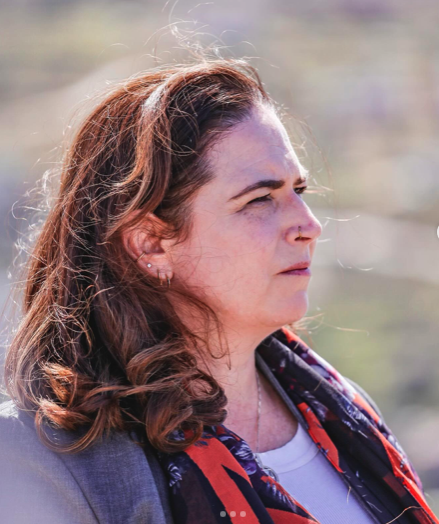Oct. 7, 2023, was a day that changed Israel—and Jewish communities across the world—forever. The murder of more than 1,200 people and the kidnapping of hundreds more by Hamas terrorists marked not only the worst massacre of Jews since the Holocaust, but the beginning of a tragedy that has since displaced over 1.5 million Palestinians, forced nearly 100,000 Israelis from their homes, and left tens of thousands grieving on both sides.
In the two years since, grief and anger have filled every corner of Jewish life. Yet out of this devastation, one truth has become painfully clear: there is no alternative to peace. The cost of abandoning a two-state solution is too high, and the moral and human consequences are intolerable.
Canada, for decades, has stood firm in its support for two states for two peoples—a policy rooted in diplomacy, compassion, and justice. Successive governments, of every political stripe, have recognized that Israel’s long-term security is inseparable from Palestinian self-determination. While the region and its politics have shifted, the vision must remain constant: a sovereign Israel living in security alongside a sovereign Palestine built on dignity and equality.
Disarming Hamas is not enough. The terror organization that launched the barbaric attack of October 7 can have no place in whatever comes next. Israelis must know they are safe and secure. Palestinians must have the agency to demand leadership that is committed to a collaborative path—one that builds governance for the people they serve, not vengeance or victory, but safety, stability, and normalized relations.
As fragile as it is, the most recent agreement between Israel and Hamas has once again placed both peoples in a tense waiting game. Hostages may soon come home. Violence may slow. Humanitarian aid may finally reach Gazans who have endured unimaginable suffering. Israelis and Palestinians alike are waiting to exhale—to imagine, perhaps for the first time in years, what “normal” might look like.
But peace requires courage. It demands leadership willing to risk political consequence for moral clarity. I know this from experience.
During the height of the war, I travelled to Ramallah—not because it was politically convenient, and certainly not because it was easy as a Canadian-Israeli and a cabinet minister—but because it was necessary. That meeting was one of the few quiet steps that helped build a foundation for the difficult conversation that continues today: what conditions must the Palestinian Authority meet to open a genuine path forward?
Those conditions are not new. They include transparent elections, an end to corruption, the dismantling of the welfare system that rewards terror, and the rebuilding of a generation through education for reconciliation and mutual recognition—not violence. These are the steps that make peace possible.
Hope, I have learned, is not naïve. It is strategic. It is an act of defiance in the face of adversity. Hope is how we persevere through despair, how we shape policy that serves people rather than politics. It is how we remind ourselves that courage does not come from certainty, but from conviction.
Leadership and agency must also come from within. Hamas has led the Palestinian people into ruin. Their unrelenting pursuit of violent resistance—at the cost of their own citizens’ lives—has turned Gaza into a place of devastation and despair. For Palestinians to have a future, their national movement must reject Hamas’s ideology of annihilation. The Palestinian people deserve leaders who understand that a viable, independent state can only exist alongside a safe and secure Israel.
This truth lies at the heart of the matter. If we are to rebuild trust and establish a lasting peace, Israelis and Palestinians alike must confront a simple, uncomfortable reality: our lives are intertwined. Our safety depends on one another.
For Jewish communities here in Canada, this truth carries a parallel responsibility. We have lived through two years of fear, mourning, and rising antisemitism. Many of us have felt isolated in our grief and anxious about our safety. But even in those moments, we cannot lose sight of our values—the belief that peace, security, and justice are not mutually exclusive but mutually dependent.
We are tired, yes—but we are not broken.
This moment, fragile as it is, offers an opening. It calls for moral courage—not only from leaders in the region but from allies like Canada who can help nurture reconciliation, rebuild institutions, and ensure accountability. Canada must be part of that work.
It is not enough to stand with Israel in solidarity; we must also stand with Israelis and Palestinians who are willing to build a different future. Peace is not inevitable, but it is possible—if we insist on it.
As our sages taught: “Lo alecha hamelacha ligmor, v’lo atah ben chorin l’hibatel mimena”—“It is not upon you to complete the work, but neither are you free to desist from it.”
That teaching has guided the Jewish people through millennia of hardship, and it must guide us now.
We cannot complete the work of peace—but we must never stop trying.
Ya’ara Saks is the former Member of Parliament for York Centre and the former Minister of Mental Health and Addictions, and Associate Minister of Health.

